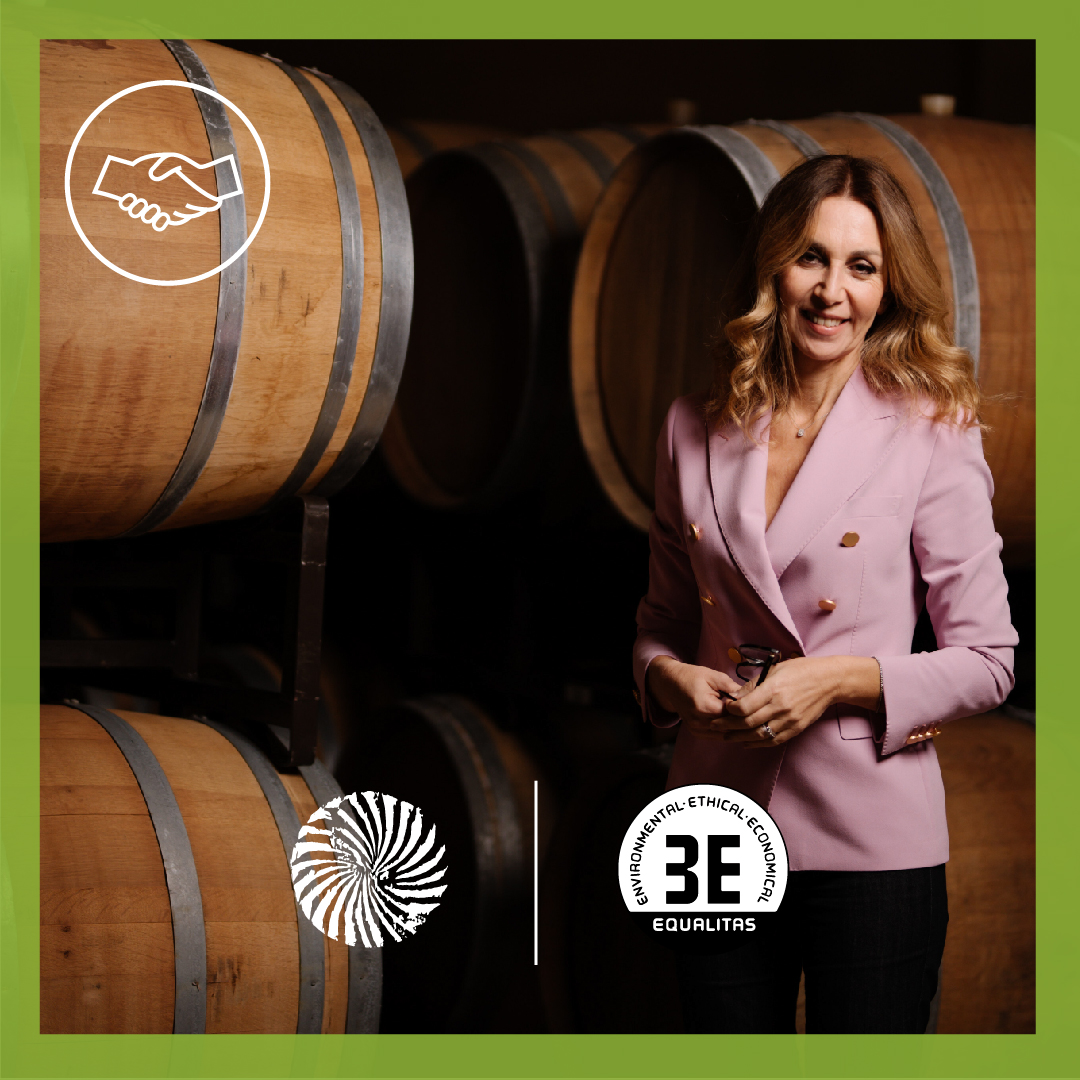Tenute Rubino invests in human resources
The socio-economic sustainability of the territories and the strategic value of training for the new generations.
The Equalitas certification, another piece added to the company’s “young” profile.
 Contributing to the social and economic sustainability of wine-producing territories through the development of individual skills and relationships with the local community. This is the approach rigorously pursued by Tenute Rubino, certified by Equalitas in January 2022. The company’s sustainable commitment in all stages of the supply chain involves continuous monitoring of its performance, responsible use of natural resources, increased income and employment in the region, and, last but not least, skill enhancement through training and constant interaction with the world of education.
Contributing to the social and economic sustainability of wine-producing territories through the development of individual skills and relationships with the local community. This is the approach rigorously pursued by Tenute Rubino, certified by Equalitas in January 2022. The company’s sustainable commitment in all stages of the supply chain involves continuous monitoring of its performance, responsible use of natural resources, increased income and employment in the region, and, last but not least, skill enhancement through training and constant interaction with the world of education.
Training plays a key role in the process of valuing individuals at Tenute Rubino. It is a fundamental tool for developing and consolidating individual skills while simultaneously spreading the values and strategy of the company, supporting its growth, and cultural and organizational evolution.
Romina Leopardi, director of marketing & communication at the company, was recently appointed scientific director of the high training course ITS Sustainable and experiential wine tourism management. Tenute Rubino is well aware of the value of quality education and training to improve the living conditions of individuals, communities, and societies, in line with Equalitas standards. Based on the results achieved, the company constantly plans activities related to workplace safety, quality and vineyard management, the world of export, marketing, foreign languages, digital skills, and, of course, wine tourism—a sector that is steadily growing. Over 200 hours of training were conducted between 2022 and 2023, and the same direction will continue in 2024, aiming for ever more concrete corporate growth.
Ethical-social and economic sustainability is not only measured from within. The Rubino family is attentive to the needs of the local people, committing to developing educational and informative activities for the new generations. An example is the project ‘Vino In-Formazione,’ an experiential format entirely dedicated to the dissemination of the Apulian wine supply chain at local hotel schools. The goal is to present students with the world of wine with its opportunities, specificities, and potential, instilling in them greater awareness in terms of knowledge and attitudes, important for present and future choices.
Topics covered include the conscious use of alcoholic beverages and the social value of wine, the main professional opportunities connected to the production chain, and the techniques and secrets of precision oenology. Vino In-Formazione concludes with a visit to the Tenute Rubino winery, allowing students to experience firsthand what they have learned in the classroom up to that point. Romina Leopardi’s contribution with the Women of Wine delegation in Puglia at the Pertini Institute in Brindisi and the Angelo Consolo IISS in Castellana Grotte enhances these extracurricular activities.
The enogastronomic heritage has always been an iconic symbol, conveying the richness of this land; following this appreciation, the aforementioned two-year course of the ITS Academy, the Regional Higher Technical Institute of Puglia for the Development of the Hospitality and Extended Tourism Industry, represents a significant opportunity for the Brindisi area. The objective is to reaffirm the deep connection with viticulture and the potential associated with the development of wine tourism. This professionalizing path, funded by the Ministry of Education and Merit, currently has 26 participating students—future professionals in the management and communication of sustainable and immersive experiences in the historical and prestigious territories of Italian wine.